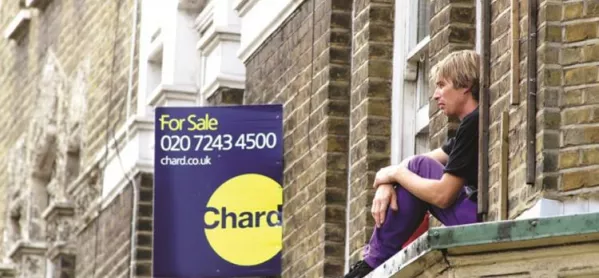Housing issues are becoming a growing problem for pupils, with experts warning the issue is feeding mental health and behaviour issues at school, Tes can reveal.
Emma Bradshaw, head of The Limes College pupil referral unit (PRU) in Sutton, south London, says that more than half her pupils now have housing problems, three times as many as in 2010.
She gave the example of one student who was forced to leave mainstream education after he ended up living in a car with his father and started acting out at school.
“If I went through our list, the percentage of young people with a significant housing problem has grown year on year,” she told Tes.
“Currently, for 50-60 per cent of our young people housing is a serious issue. In 2010 it was 20 per cent.”
Quick read: Teachers are also being priced out of the capital
Quick read: Good schools can push up housing prices
Paul Noblet, head of public policy at London-based homelessness charity Centrepoint, told Tes that nearly four in 10 of the young people they see have fewer than five GCSEs at A*-C and more than half have mental health problems.
“There does seem to be a correlation of people struggling with mental health because of what’s happening at home and the lowering of educational attainment,” he said. “More people being referred into PRUs is perhaps a symptom of what is going on.”
Homelessness has been growing as a problem in the UK since the financial crash in 2008 and in the years of austerity that have followed.
As of the end of June, government statistics showed 82,310 households in England were in temporary accommodation, up more than 70 percent compared to the end of 2010.
The situation is particularly acute in the capital, where the London Assembly reported 25,000 fewer homes were built than were needed in 2017-18.
The assembly has estimated there are 13 times as many homeless people in London as commonly thought - many of them young LGBT people and those fleeing domestic violence.
Poor families have fared worst in recent years, as a freeze on benefits and reduced access to social housing have increased competition for cheaper private rentals.
Teachers interviewed by homelessness charity Shelter described watching how housing insecurity had affected their pupils. All had become more stressed and anxious; younger children tended to withdraw while teenagers became aggressive.
Others who spoke to the charity said students found it harder to keep track of possessions, would feel ashamed of coming to school in dirty clothes and struggled to do their homework - a particularly acute problem at exam time.
“Not having a permanent home has a massive impact on children’s ability to participate in school successfully,” said one secondary teacher quoted in the 2017 report. “It can hold them back as they feel different to everybody.”
Geoff Barton, general secretary of the Association of School and College Leaders, said schools were “increasingly having to pick up the pieces caused by increasing levels of pupil poverty and cuts to local services”.
“They are having to do so in a context of real-terms cuts to their own budgets which make it increasingly difficult to provide the level of support needed by these young people. This means that it is harder to provide the early intervention which prevents behaviour problems escalating to the point of exclusion,” he said.
“Schools are doing their very best in difficult circumstances, but they need more investment and better joined-up economic and social policies beyond the school gates.”




